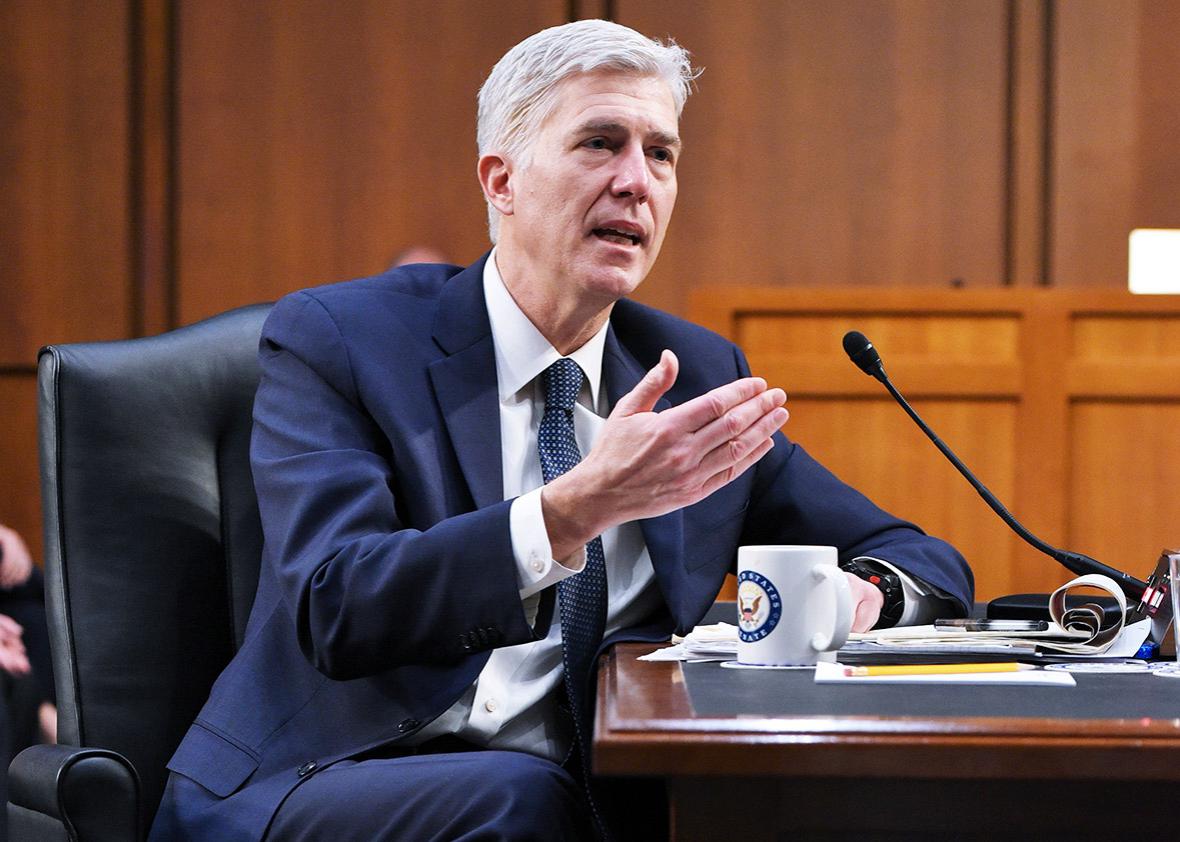After four days of marathon hearings before the Senate Judiciary Committee, Senate Minority Leader Chuck Schumer has announced that Democrats will filibuster the nomination of Judge Neil Gorsuch to the Supreme Court. Under current Senate rules, 60 votes are required to stop a filibuster and proceed to an up-or-down vote requiring only a simple majority. With 52 seats under Republican control, Majority Leader Mitch McConnell has two options if he wants to get Gorsuch through: He can persuade eight Democrats to defect, or he can exercise the so-called “nuclear option” eliminating the filibuster for Supreme Court nominees altogether.
Would a filibuster of Gorsuch be a smart move for Democrats? As a conservative and self-described originalist, his appointment to the seat formerly held by Justice Antonin Scalia would not shift the balance of the court. Therefore, some argue, the filibuster should be preserved for a future Trump nominee—one who might replace one of the court’s liberals, such as 84-year-old Ruth Bader Ginsburg or 78-year-old Stephen Breyer. Proponents of a Gorsuch filibuster point out that McConnell is no less likely to violate longstanding norms the next time around and that Democrats must push back against the majority leader’s extraordinary refusal to consider the nomination of Merrick Garland.
Ronald Klain, who served as senior White House aide to presidents Clinton and Obama and assisted in shepherding the last four Democratic-appointed justices through the Supreme Court confirmation process, believes that Senate Democrats are right to filibuster the Gorsuch nomination. On this week’s episode of Slate’s Supreme Court podcast Amicus, Klain told Dahlia Lithwick why it’s “time to draw the line in the sand.” (Klain’s answer has been condensed and edited.)
My thinking on this has evolved over the past several weeks, but to me it comes down to this.
First of all, I think Justice Kennedy may well leave this summer, and I think that we’re talking about perhaps two nominees this year.
The idea that we would not filibuster Judge Gorsuch because Mitch McConnell is threatening to take our right to filibuster away, and save it for the next nominee, when Mitch McConnell will surely take our filibuster rights away—I just don’t see what we get out of abstaining in that circumstance. You know, this is a little bit like Charlie Brown and the football.
It’s time to take the strong stand, time to draw the line in the sand, and let the chips fall where they may. The only argument against filibustering Judge Gorsuch is, if you really believed that when Justice Kennedy retired and we wanted to filibuster that nominee that because we failed to filibuster Judge Gorsuch, Mitch McConnell would for some reason not go nuclear on the court-bending choice of Justice Kennedy’s replacement. And I don’t see any reason to believe that.
Given that I don’t think there could be a deal with McConnell or a deal that would be binding or any kind of long-term guarantee of the Democrats’ rights, I don’t really see why they shouldn’t use their full rights on this nomination, given both what happened to Judge Garland, and more importantly, Judge Gorsuch’s failure to answer questions in the confirmation process and failure to give Democrats any reassurance about his jurisprudence.
To hear Lithwick’s whole interview with Klain, subscribe to Amicus. The entire episode will be posted at 2 a.m. Eastern Time on Saturday, March 25.
